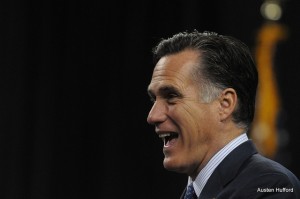Mitt Romney on Climate Change
Mitt Romney: “However, there remains a lack of scientific consensus on the issue — on the extent of the warming, the extent of the human contribution, and the severity of the risk”
With this point of view, Mitt Romney is in line with 38 percent of US citizens who also believe scientists are unsure whether climate change exists. But what public to whatever extent believes is not necessarily the truth – as it is in this case. In fact, there is no lack but a consensus among the scientific community which is stated from several sites. Additionally to these scientific statements, several polls were performed among (non)climate scientists revealing a very broad agreement for existance of climate change.
Bottom line: Not really true.
Mitt Romney: “The reality is that the problem is called Global Warming, not America Warming. China long ago passed America as the leading emitter of greenhouse gases.”
It is true, that China passed the US in emitting most greenhouse gases. But you should not only see GHG emissions alone, but set this value in relation to number of inhabitants. For a simple reason as this: more people surely produce more greenhouse gases.
And when taking this point of view, the US are unbeaten: they emit at least three times as much greenhouse gases per capita as China does for example.
Taking a closer look – not only at greenhouse gases in general, but at CO2 – the picture does not change at all. CO2 makes up 77 percent of greenhouse gases and again the US produces at least three times as much CO2 per capita as China does.
Bottom line: Not false, but warping (missleading?) due to leaving of facts.
Mitt Romney: “Developed world emissions have leveled off while developing world emissions continue to grow rapidly”
It is right that the emissions of the developed world continue to grow. But it’s worth to take a look for the reasons: Blogger Robert Rapier explains it this way: “Because growth is currently being driven by very large numbers of people who are increasing consumption from a very low level, it is difficult to envision a pathway to development that does not involve additional fossil fuel consumption in the foreseeable future.”
Furthermore the Guardian sets up a relation between the financial crisis and the trend Romney names.
So, in the end it is right that it’s the developing countries themselves, who have to decide how much they want and can invest in other energy sources.
Bottom line: True, though should be embedded in larger context.




